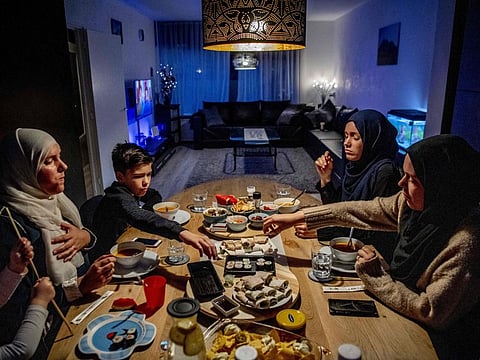This Ramadan say no to food waste
We need to eat responsibly and ethically to do our bit for the planet’s sustainability

These realities, and their epidemic proportions around the world, sit square in the middle of the deepening food-related environmental crisis. We are producing too much food in too many unsustainable ways and much of that effort is going to waste thanks to our apathy.
This week, Dubai Carbon, an initiative established in 2011 by an agreement between the Dubai Supreme Council of Energy (DSCE) and the United Nations Development Programme (UNDP), presented numbers on food consumption that seek to encourage us to not waste food in a way that does not tax our attention-deficit brains and abundance-addicted attitudes. For instance, did you know that eating beef twice a week contributes 601kg to the UAE’s carbon emissions annually, which is equivalent to driving 2,468km? Or that switching from beef to chicken would save 500kg in emissions annually? And that cheese, even if it’s only a slice you waste, requires a huge amount of energy to grow? You can drive from Dubai to Abu Dhabi using the amount of energy it takes to make 7kg of cheese.
These facts and numbers, however interestingly put together, point to a serious problem confronting our present and future: the need to eat responsibly and ethically, the way our ancestors did. They understood what it took to grow food and put it on the plate. They had a deep knowledge of how the earth respected the elements as it yielded pure crops season after season.
So they bought and ate only what they needed.
We too need to educate ourselves on what it takes to grow, package, transport and distribute food and the impact of these processes on the environment.
Let’s begin this Ramadan. Let’s begin today.



